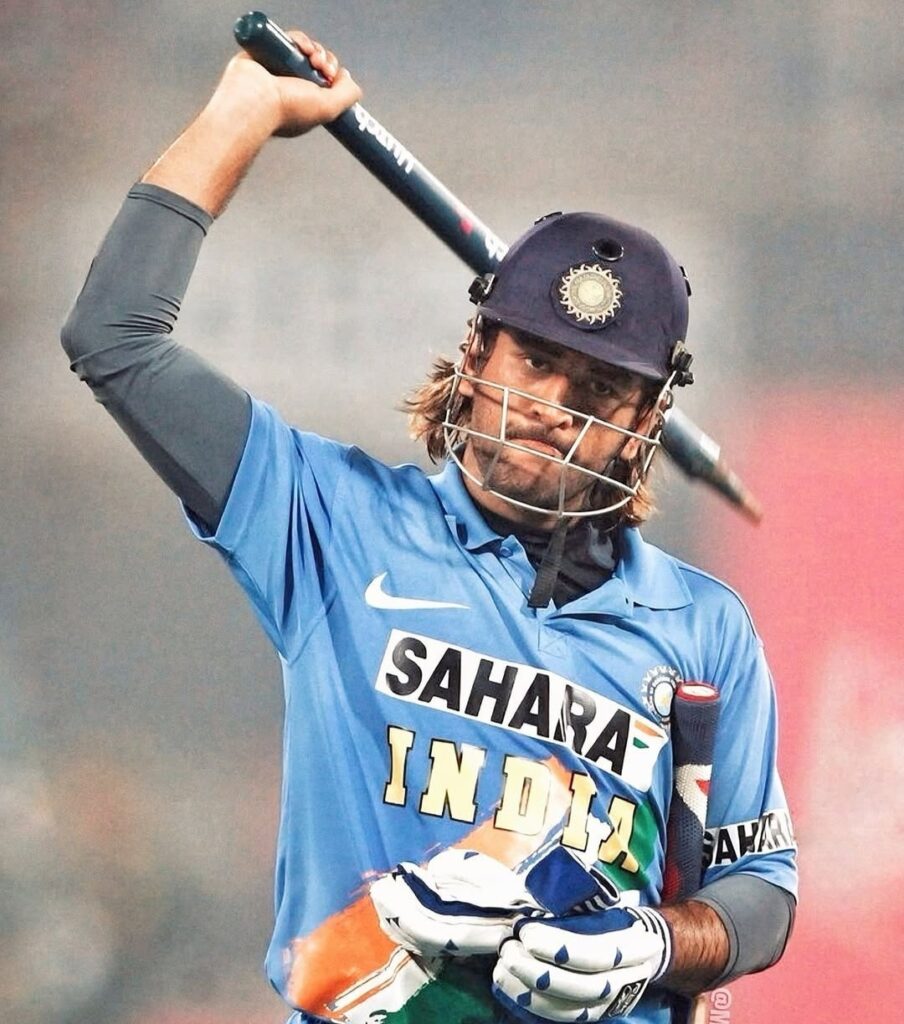
- MS Dhoni: The Legendary Indian Cricketer
Mahendra Singh Dhoni, widely known as MS Dhoni, is one of the most iconic figures in the history of cricket. Born on July 7, 1981, in Ranchi, Jharkhand, Dhoni rose from humble beginnings to become one of the most celebrated cricketers in the world. His exceptional leadership, calm demeanor, and unparalleled skills as a wicketkeeper-batsman have left an indelible mark on Indian cricket and the sport globally.
- Early Life and Journey to Cricket
MS Dhoni’s journey to cricket was not conventional. Initially more inclined toward football, he played as a goalkeeper for his school team. However, his football coach recognized his potential and encouraged him to try his hand at cricket. Dhoni’s natural flair for wicketkeeping was evident, and he quickly transitioned into a cricketer. Despite his talent, his journey was not easy. Coming from a small town, he faced numerous challenges but remained determined to pursue his passion.
Dhoni’s big break came when he was selected for the Bihar U-19 team, which paved the way for his entry into the domestic circuit. His performance in domestic cricket, particularly for the Bihar and Jharkhand teams, caught the attention of national selectors. It was his explosive batting style and exceptional wicketkeeping skills that eventually earned him a spot in the Indian team in December 2004.
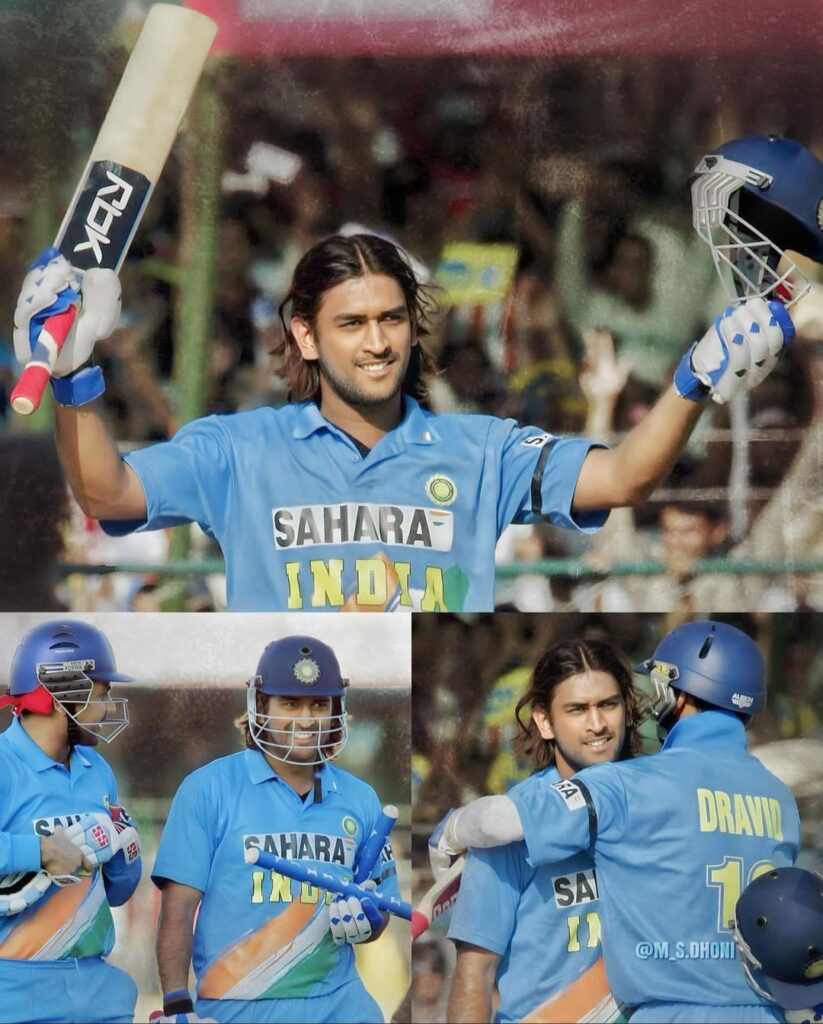
- Rise to Stardom
Dhoni announced his arrival on the international stage with a blistering 148 against Pakistan in an ODI in 2005. His fearless batting and ability to dominate bowlers made him an instant favorite among fans. His rise was meteoric, and he soon became the face of a new generation of Indian cricketers.
One of Dhoni’s most remarkable traits was his ability to stay calm under pressure. This earned him the nickname “Captain Cool” when he took over as the captain of the Indian team in 2007. Under his leadership, India achieved unprecedented success, including winning the inaugural ICC T20 World Cup in 2007. His innovative captaincy, ability to make bold decisions, and knack for finishing games established him as one of the greatest leaders in cricket history.
- Achievements as a Captain
MS Dhoni’s captaincy is synonymous with success. He remains the only captain in cricket history to win all three major ICC trophies:
- ICC T20 World Cup (2007): Dhoni led a young Indian team to victory in the first-ever T20 World Cup, defeating Pakistan in a nail-biting final.
- ICC Cricket World Cup (2011): The crowning jewel of Dhoni’s career was leading India to its second ODI World Cup victory after 28 years. His iconic six to seal the final against Sri Lanka is etched in the memories of cricket fans forever.
- ICC Champions Trophy (2013): Under his leadership, India won the Champions Trophy, further cementing his legacy as a captain par excellence.
In addition to ICC tournaments, Dhoni also guided India to the top of the ICC Test rankings in 2009, a significant milestone in Indian cricket. His leadership style, characterized by backing his players and maintaining composure in critical moments, played a pivotal role in these achievements.
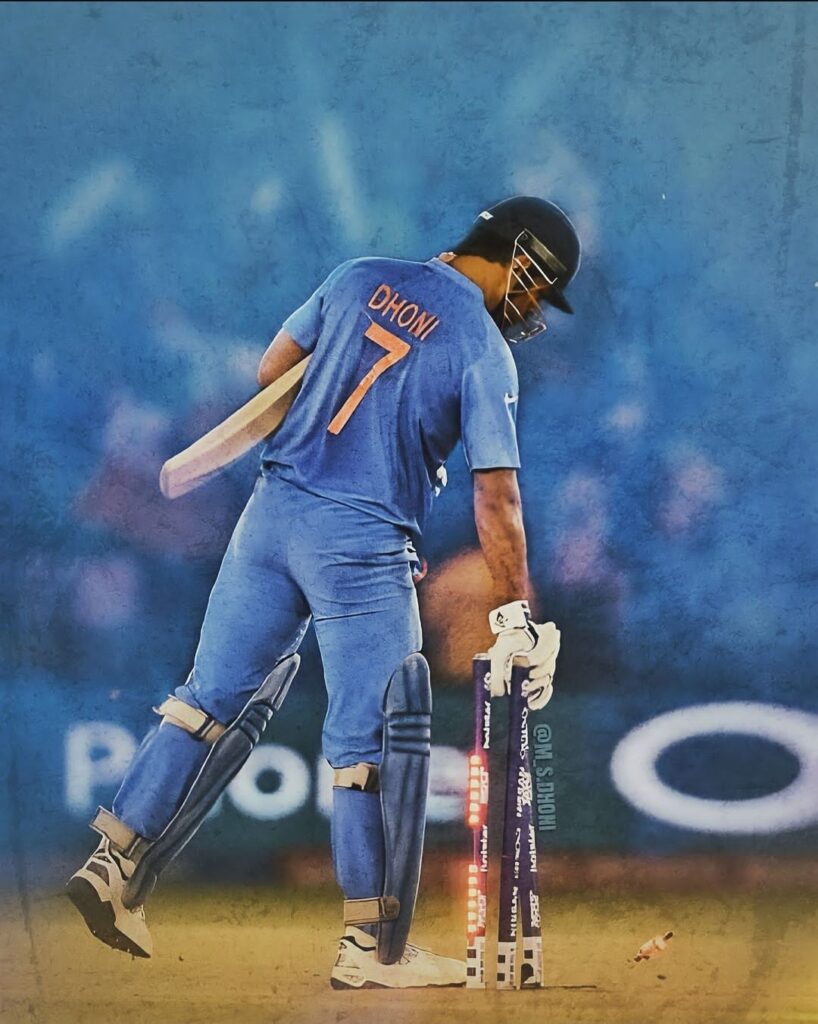
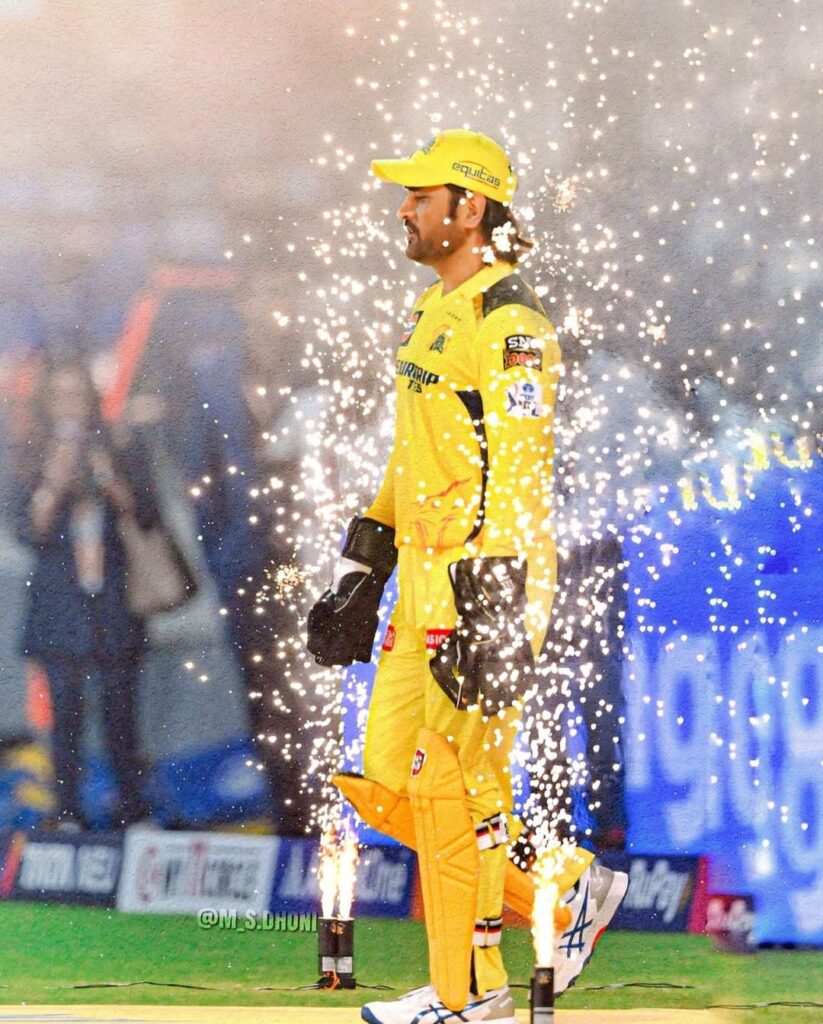
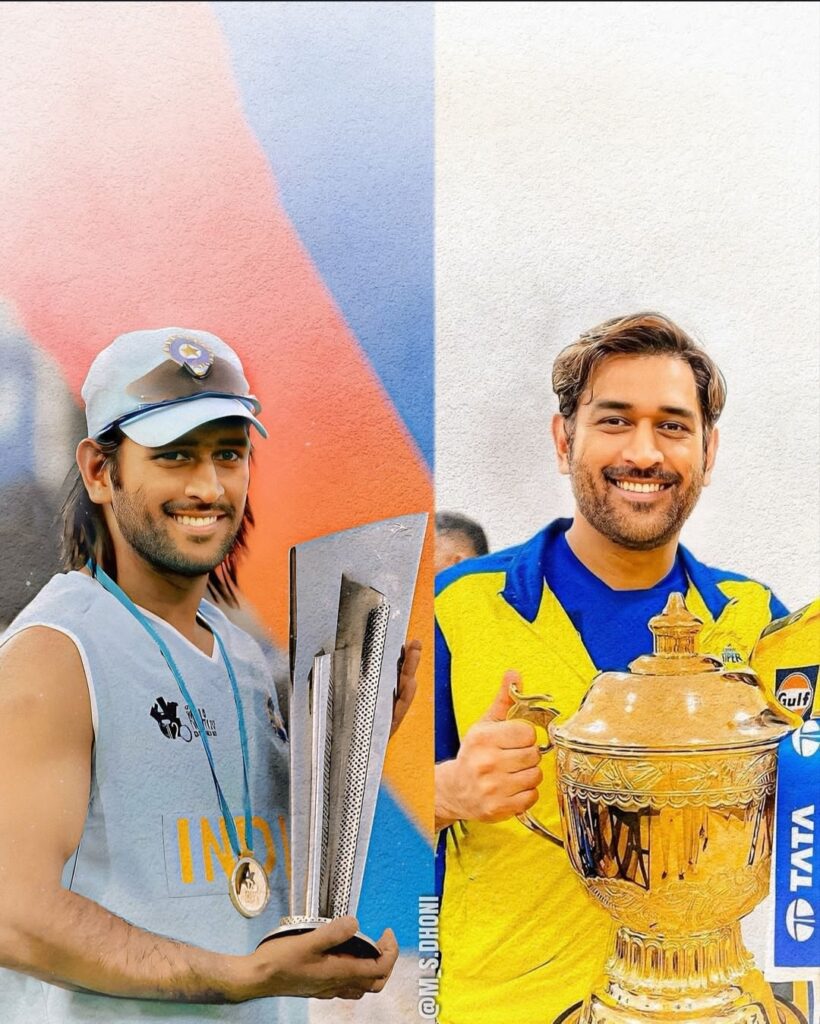
- A Finisher Par Excellence
Dhoni is renowned for his finishing abilities in limited-overs cricket. His ability to absorb pressure and deliver in crunch situations is legendary. Whether it was his unbeaten 91 in the 2011 World Cup final or numerous last-over finishes in ODIs and T20s, Dhoni consistently displayed nerves of steel.
As a batsman, Dhoni was known for his unorthodox yet effective technique. He could adapt to any situation, whether it required anchoring the innings or accelerating the scoring rate. His trademark “helicopter shot” became a fan favorite and a symbol of his unique batting style.
- The IPL Legacy
Dhoni’s impact extended beyond international cricket into the Indian Premier League (IPL). As the captain of the Chennai Super Kings (CSK), he led the team to multiple IPL titles (2010, 2011, 2018, 2021, and 2023). His leadership transformed CSK into one of the most successful and consistent franchises in IPL history. Dhoni’s ability to mentor young players and extract the best from his team contributed significantly to his IPL success.
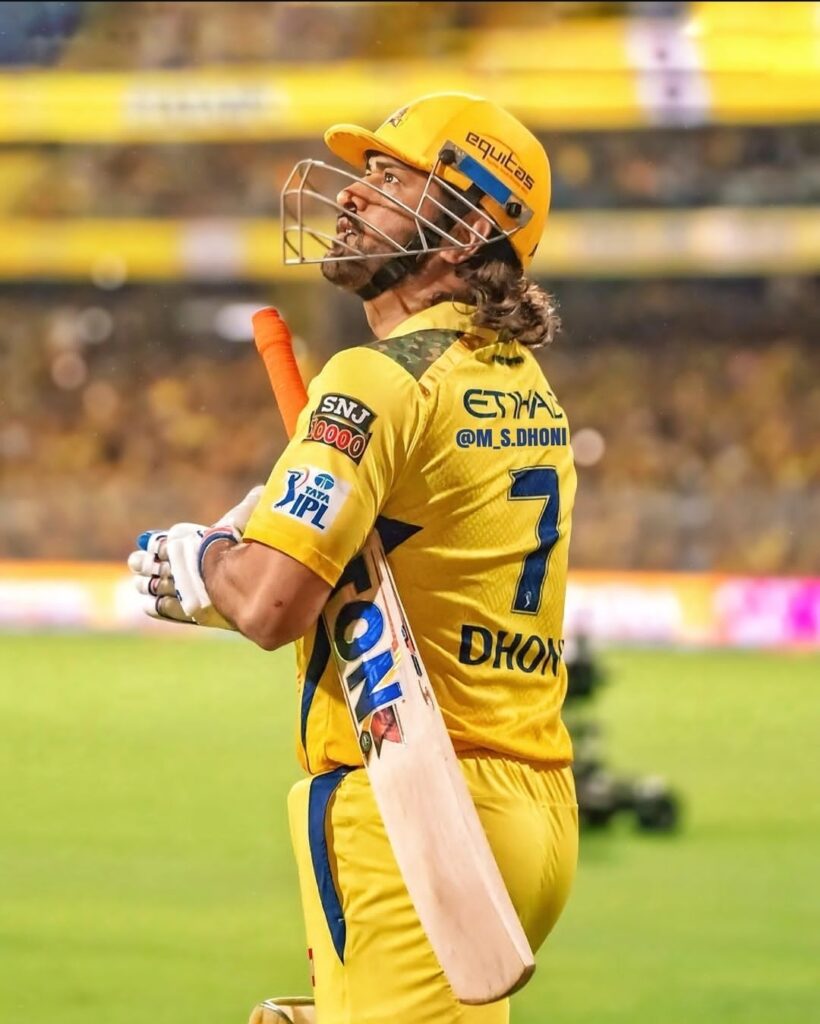
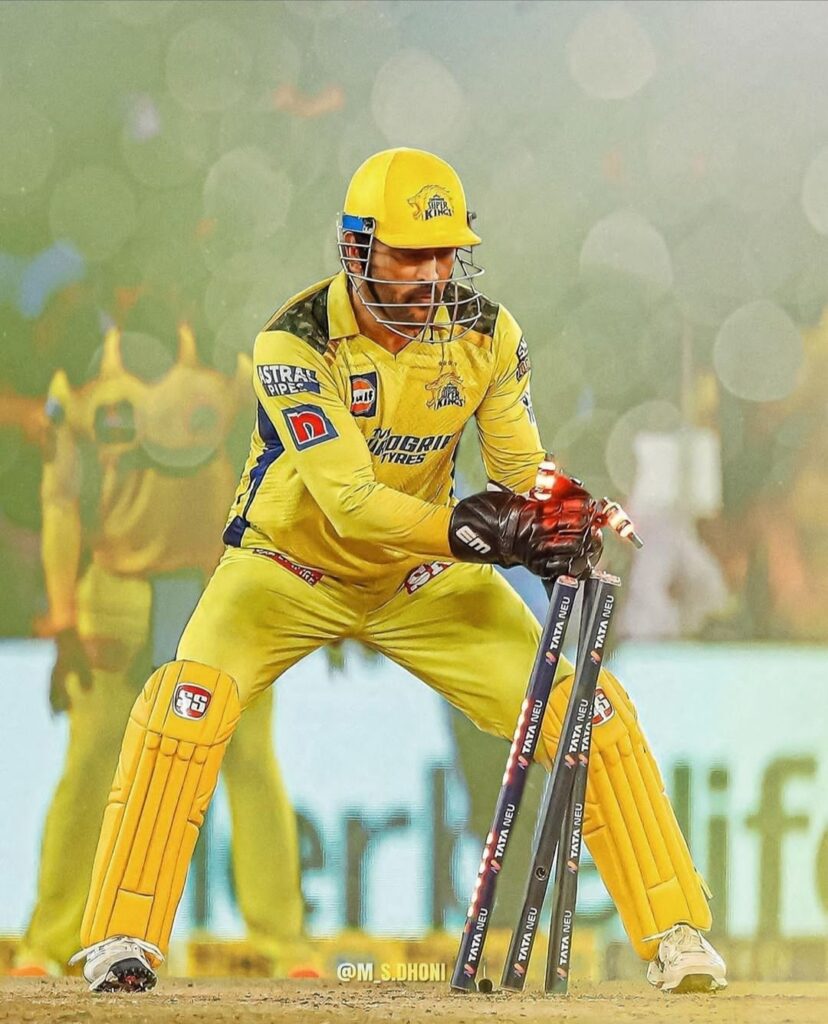
- Wicketkeeping Excellence
While Dhoni’s batting and captaincy often took the spotlight, his wicketkeeping skills were equally remarkable. He was known for his lightning-fast stumpings, safe hands, and innovative techniques behind the stumps. Dhoni holds several records as a wicketkeeper, including the most dismissals in T20 internationals and some of the fastest stumpings ever recorded.
- Retirement and Legacy
Dhoni retired from Test cricket in 2014 and from international cricket on August 15, 2020. His retirement marked the end of an era, but his legacy continues to inspire millions. Dhoni remains a role model for aspiring cricketers, particularly those from small towns and humble backgrounds.
Even after retirement, Dhoni’s contribution to cricket persists. His leadership and cricketing acumen are highly regarded, and he is often sought for advice and mentorship. His humility, work ethic, and dedication to the game have made him a global icon.
- Beyond Cricket
Off the field, Dhoni is known for his love of motorcycles, philanthropy, and involvement in various business ventures. He also serves as a lieutenant colonel in the Indian Territorial Army, a testament to his patriotism and love for the nation.
- Conclusion
MS Dhoni’s journey from a small-town boy to a cricketing legend is nothing short of inspirational. His contributions to Indian cricket, both as a player and a leader, have been immense. He redefined the role of a captain, set new benchmarks as a finisher, and left a legacy that will be cherished for generations.
Dhoni is not just a cricketer but an emotion for millions of fans. His story exemplifies the power of perseverance, hard work, and self-belief, making him a true legend of the game.